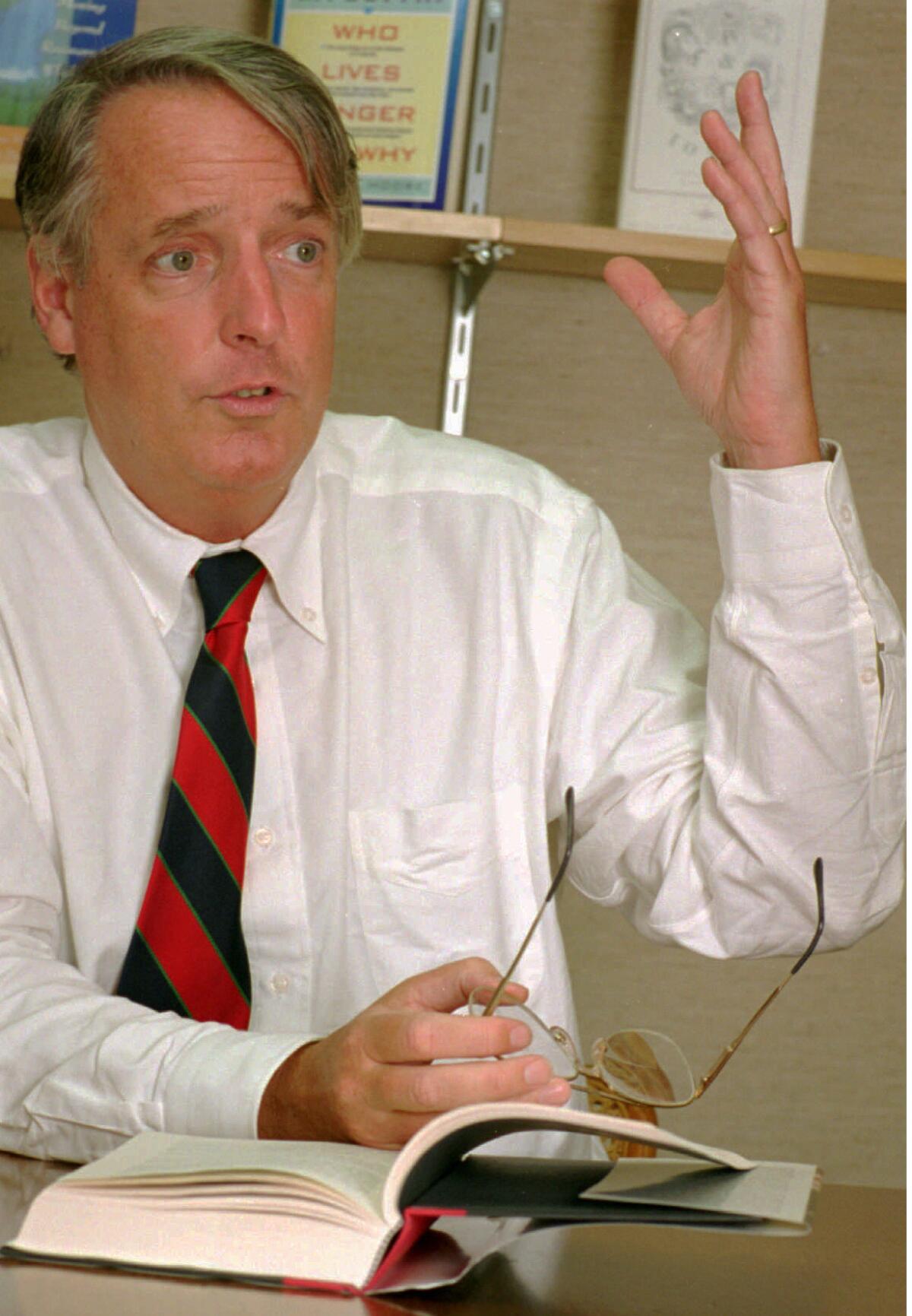‘Fatal Vision’ author Joe McGinniss has died at 71

Author Joe McGinninss, political chronicler, novelist, and sometime muckraker has died, the Associated Press reports. He was 71 and had prostate cancer.
Best known in recent years for moving next door to former Alaska Gov. Sarah Palin in Wasilla in order to work on a book about her -- much to her annoyance -- McGinniss also wrote about the Kennedys, Richard Nixon and true crime, often stirring controversy.
McGinniss was a 26-year-old newspaper columnist in Philadelphia when he wrote his scathing look at the campaign of Richard Nixon, “The Selling of the President: 1968.” The book went inside the media and marketing campaign of Nixon; published in 1969, it was a bestseller.
In the 1970s, McGinniss was a columnist at the L.A. Herald Examiner when he was approached by Jeffrey MacDonald, a Green beret accused of killing his wife and daughters years earlier.
McGinniss published the true-crime story about MacDonald, “Fatal Vision” in 1983, and it became a bestseller. MacDonald, who was convicted, later sued McGinniss, saying the author had pretended to believe in his innocence to retain his cooperation for his book; McGinniss’ publisher settled out of court.
The case and the role of journalists writing about true crime spawned several subsequent works, including McGinniss’ own take, “Final Vision: The Last Word on Jeffrey MacDonald,” a Kindle Single, and “A Wilderness of Error” by Errol Morris, both published in 2012. MacDonald remains in prison.
His book about Sarah Palin, “The Rogue: Searching for the Real Sarah Palin” was published in 2011 and included his observations from being her neighbor during 2010. “[N]o matter how much my book sales might benefit from a Palin presidential campaign in 2012,” McGinniss wrote, “I sincerely hope that the whole extravaganza, which has been unblushingly underwritten by a mainstream media willing to gamble the nation’s future in exchange for the cheap thrill of watching a clown in high heels on a flying trapeze, is nearing the end of its run.”
McGinniss’ dismissal of Palin didn’t go over well with her right-wing supporters, but he was also critical of powerful Democrats. His 1993 book “The Last Brother: The Rise and Fall of Teddy Kennedy” riled left-leaning readers. It was called, variously, “avaricious slop, plagiaristic, journalistic histrionics, unadulterated junk, salacious, mean-spirited and novelistic landfill,” -- the last for attributing thoughts to Ted Kennedy that the author had imagined.
McGinniss wasn’t alone in cozying up to an accused killer (Truman Capote did that first, resulting in the seminal “In Cold Blood”), nor was he the only one to imagine scenes for a political biography (Edmund Morris took that to extremes in “Dutch: A Memoir of Ronald Reagan”). McGinniss, somehow, was more likely to catch heat for his risks than other writers.
He addressed his shifting popularity on his website. “Whether he’s writing about a politician (Richard Nixon, Ted Kennedy, Sarah Palin), a sociopath (Jeffrey MacDonald, Nancy Kissel), or even a soccer team, McGinniss feels compelled to search for the truth, however elusive, behind the people and events he chronicles. Penetrating the façade of institutions and people in public life can be an exhilarating but risky business. Sometimes the results are culturally ground-breaking and wildly popular, sometimes disillusioning and distinctly unpopular, sometimes personally heartbreaking.”
McGinniss was the author of more than a dozen books. He is survivors include his son, the author Joe McGinniss Jr.
ALSO:
George Saunders wins first-ever Folio Prize
Fake Goldman Sachs tweeter John LeFevre loses his book deal
Anne Rice brings back her vampire antihero with October’s “Prince Lestat”
Carolyn Kellogg: Join me on Twitter, Facebook and Google+
More to Read
Sign up for our Book Club newsletter
Get the latest news, events and more from the Los Angeles Times Book Club, and help us get L.A. reading and talking.
You may occasionally receive promotional content from the Los Angeles Times.





